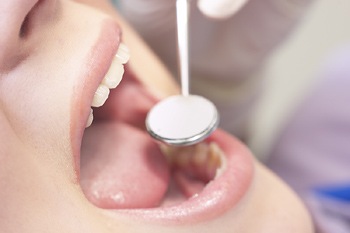Jun 3 2005
Visually screening the mouths of individuals at high-risk of oral cancer could prevent around 37,000 worldwide deaths annually from the disease, suggests a study published in this week’s issue of The Lancet.

In 2002, there were over 270,000 new cases of mouth cancer and around 145 500 deaths worldwide, two-thirds of which occurred in developing countries. Mouth cancer is the commonest form of cancer and cancer death in men in India. The high-risk in the Indian subcontinent is related to the high prevalence of pan-tobacco (a combination of betel leaf, lime, areca nut and sun cured tobacco) chewing in the population.
Rengaswamy Sankaranarayanan (International Agency for Research on Cancer, Lyon, France), Kunnambath Ramadas (Regional Cancer Centre, Trivandrum, India) and colleagues randomly selected 13 population clusters in the Trivandrum district of Kerala, India, for inclusion in the study. 7 of the clusters were randomised to receive 3 rounds of oral visual screening by trained health workers at 3-year intervals and 6 clusters were assigned to receive usual care. Those eligible for the study were healthy individuals aged 35 years and above with no past history of oral cancer. The health workers referred anyone with one or more mouth lesions to a dentist or oncologist for clinical confirmation of mouth cancer. Over 87 600 people were screened at least once, over 53,300 twice, and over 29,100 three times. Of 5,145 positive screens, 3,218 complied with referral. Among these, 835 had benign lesions, 2,252 were diagnosed with oral pre-cancers, and 131 with invasive oral cancer. Follow-up revealed that 5-year survival was substantially increased in the intervention group (50%) compared with control (34%). The researchers also found that mortality among tobacco/alcohol users was reduced by 34% in the screening group compared with similar controls, 9-years after the initiation of screening.
Dr Sankaranarayanan comments: “This is the first time a significant reduction in mortality is reported following oral cancer screening ...Our findings support the routine use of oral visual screening in reducing oral cancer mortality among the high-risk of group of tobacco/alcohol users”.
Dr Ramadas adds: “We believe that consideration should be given to the establishment of oral screening of high-risk individuals in routine health services in India given the high burden of disease (83,000 new cases and 46,000 deaths annually) in the country and other high-risk areas. Based on our findings, oral visual screening the potential to prevent at least 37000 deaths from oral cancer worldwide annually.”
In an accompanying Comment Michele Mignogna (University of Naples, Italy) states: “Sankaranarayanan and colleagues’ data should lead health organisations to change, at least in part, their policy, transferring resources from conventional fields to new methods of preventive intervention with greater effectiveness and lower cost. We have to remember that screening for oral cancer is a simple, non-invasive procedure, which needs only a 5 min visual inspection of the oral mucosa with lighting, gauze, gloves, whereas the detection of most solid malignancies in the early asymoptomatic stages almost always requires special, costly, and often invasive techniques. Visual screening for oral cancer is easy, effective, cheap, and saves lives.”